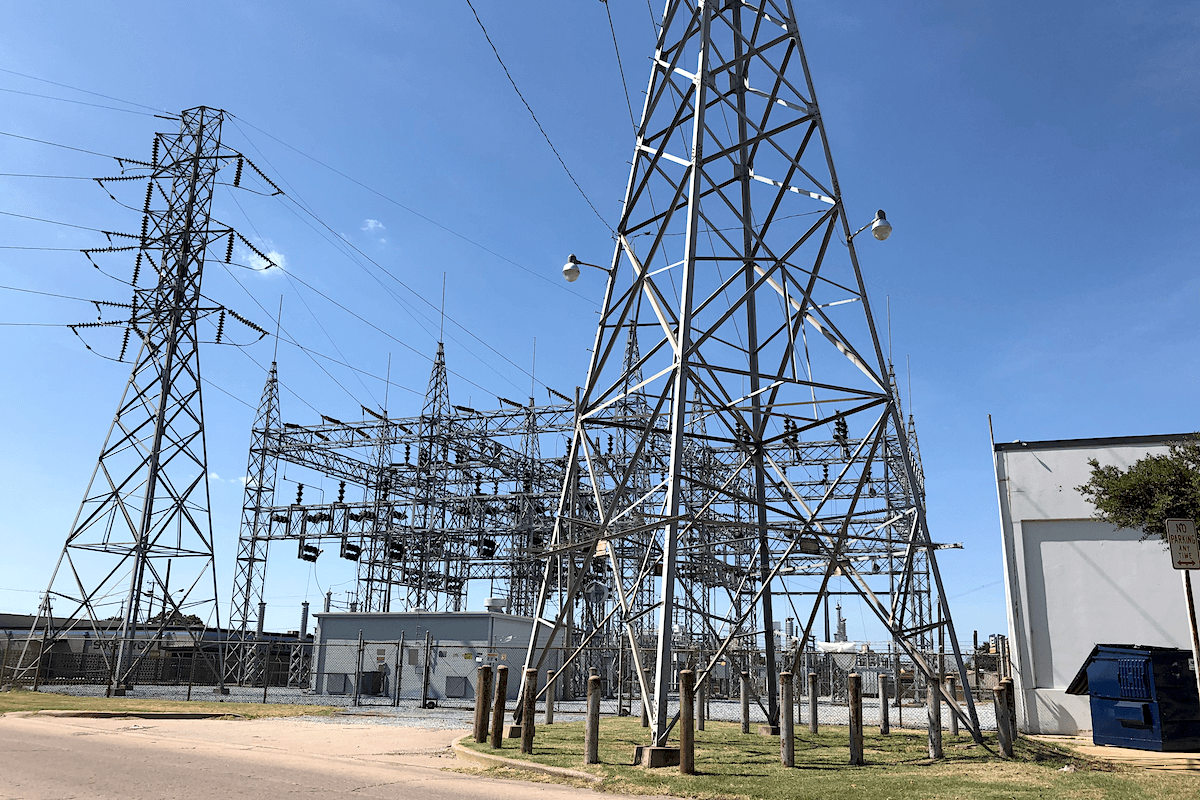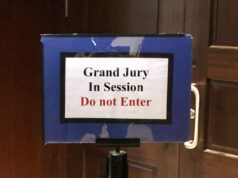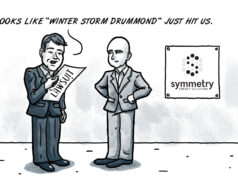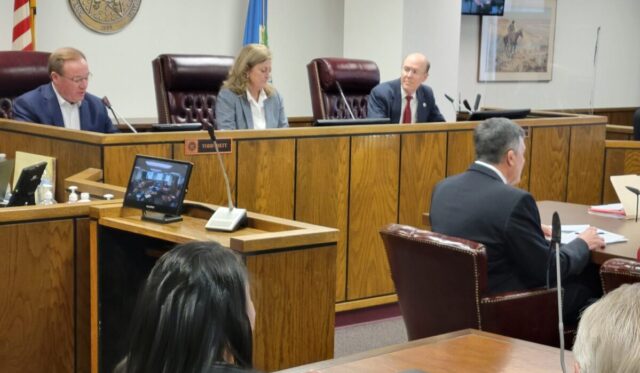

(Update: SB 1103 did not receive a Senate floor hearing before the March 23 deadline, although the topic could be negotiated further by legislative leadership this session. The following article remains in its original form.)
Seven minutes after his unusual meeting about SB 1103 began Monday, Oklahoma Corporation Commission Chairman Todd Hiett learned that four pages of 30 wording changes had been filed in a floor amendment to the controversial bill regarding electric utility regulation.
Hiett, who last week sent out notice of Monday’s special meeting to discuss SB 1103, was visibly aggravated when he found out the amendments were filed shortly after his meeting began.
“I’m very disappointed in the handling of the legislation and the fact that the filing of an amended bill happened during this hearing that had been posted for many, many days,” Hiett said.
After nearly three hours of discussion in the crowded hearing room of the Jim Thorpe Building, two of the three Oklahoma Corporation Commission members decided not to take a stand on the legislation labeled as the Ratepayer Protection Act of 2023. Opponents said the measure instead should be called the utility shareholders relief act.
“It’s very important that the commission stand up for the ratepayers of Oklahoma,” Hiett said. “We are the ones elected to stand in that gap, and we missed an opportunity today to do so for the ratepayers.”
Corporation Commission members are elected statewide to six-year terms for the purpose of regulating and overseeing electric and gas utilities, petroleum production operations and other industrial efforts. The meeting’s agenda suggested that commissioners could have formally denounced SB 1103 and directed their legislative liaison to oppose it up the street at the State Capitol, but neither Commissioner Kim David nor Commissioner Bob Anthony would join Hiett in such a request.
SB 1103 by Senate President Pro Tempore Greg Treat (R-OKC) proposes changes to how electricity rates are governed in the state. Currently, investor-owned electric utilities apply for rate increases based on proposed system investments and other factors, with the Corporation Commission hearing the proposals and handling them individually, often dragging their final decisions out for months. But SB 1103 would establish a performance-based rate plan in which non-fuel revenue requirements of a rate-regulated electric utility shall be calculated and allocated to the various rate schedules, subject to the jurisdiction of the OCC. It also would require electric utilities that generate electricity with natural gas to have a firm supply of the fuel to operate their facilities at an 80 percent maximum daily quantity for 14 consecutive days during winter months.
Asked about his filed amendment Tuesday morning, Treat said some of the changes were attempting to address Corporation Commission concerns while others stemmed from “negotiations between some in the utility industry and the oil and gas industry.” The proposed amendment adds new definitions for “capacity factor,” “actual physical storage” and “maximum daily quantity.”
During Monday’s hearing, new Commissioner Kim David said it would be premature to take a stand on SB 1103 because Public Service Company of Oklahoma has a pending case in front of the commission, which includes a formal base rate proposal. She said she would abstain from any vote.
OCC Vice Chairman Bob Anthony said while electric utility companies and advocates against the measure attended the meeting, there were few members of the general public present. He also was concerned about the proposed changes to SB 1103 filed shortly after the meeting started, giving commissioners and most of those in the meeting little time to review the differences.
“Well, great,” Anthony said, holding up a copy of SB 1103 when he was told the floor amendment had been filed. “What am I supposed to do with this one? (…) It’s kind of a moving target.”
As he has discussed for months, Anthony said he remains disappointed with his fellow commissioners for their inaction in the face of Oklahoma electric and gas utilities’ historically high bills charged to ratepayers during Winter Storm Uri in 2021. Anthony cited the total $2 billion price tag associated with the Legislature’s last so-called “protection act” concerning public utilities, which he said caused the state to issue billions in ratepayer-backed bonds to pay off the massive debts accumulated because utilities had not adequately stored natural gas ahead of Winter Storm Uri.
The legislation that authorized securitization of the ratepayer debt, Anthony said, “was really a bailout of the utilities that resulted in the worst fleecing of Oklahoma public utility ratepayers in the last three decades.”
Hiett: Legislative leadership-backed SB 1103 tough to defeat
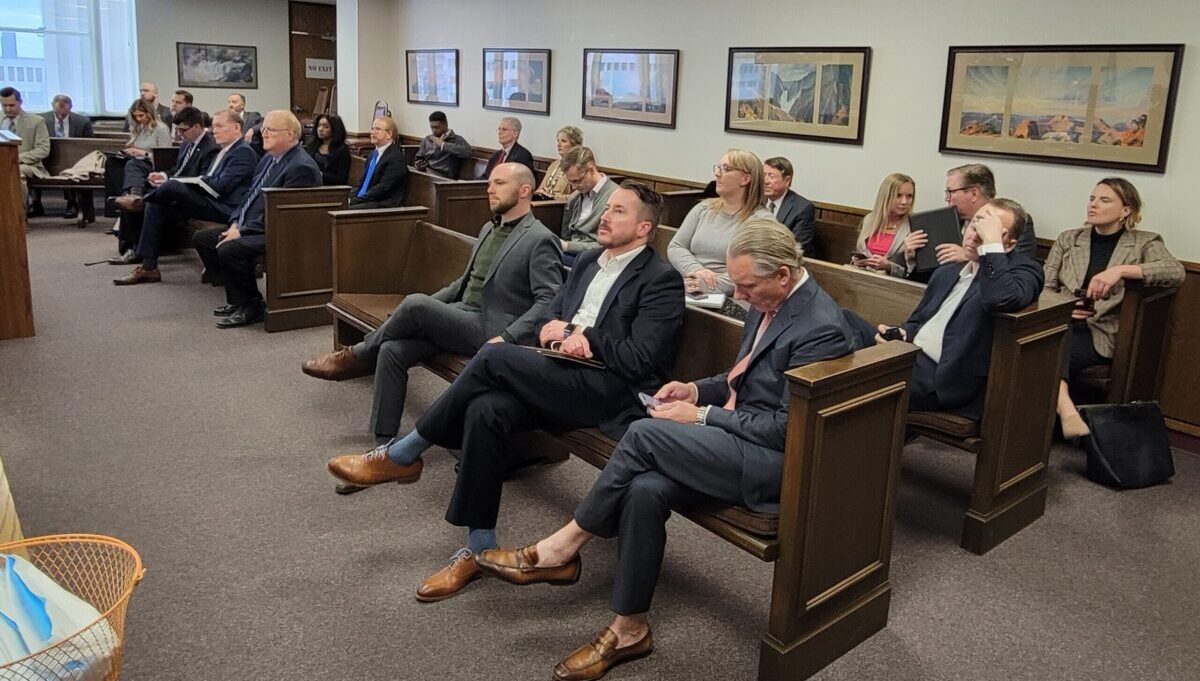
Hiett, a former speaker of the state House of Representatives, acknowledged that SB 1103 will be difficult to defeat because its authors are Treat and House Speaker Charles McCall (R-Atoka).
Still, he said the public should be concerned because SB 1103 usurps the authority of the Oklahoma Corporation Commission.
“It takes away our ability to evaluate whether a performance-based rate plan is in the best interest of the consumer, and our central change is to act in a way that is in the best interests of the consumer,” he said.
Overall, during testimony provided Monday, SB 1103 was praised by Oklahoma’s investor-owned utilities as an efficient way to limit lengthy fights in front of the Corporation Commission. But opponents said it will complicate the impact of utilities’ constant rate increase requests and will limit oversight.
Electric utilities: SB 1103 ‘is good for customers’
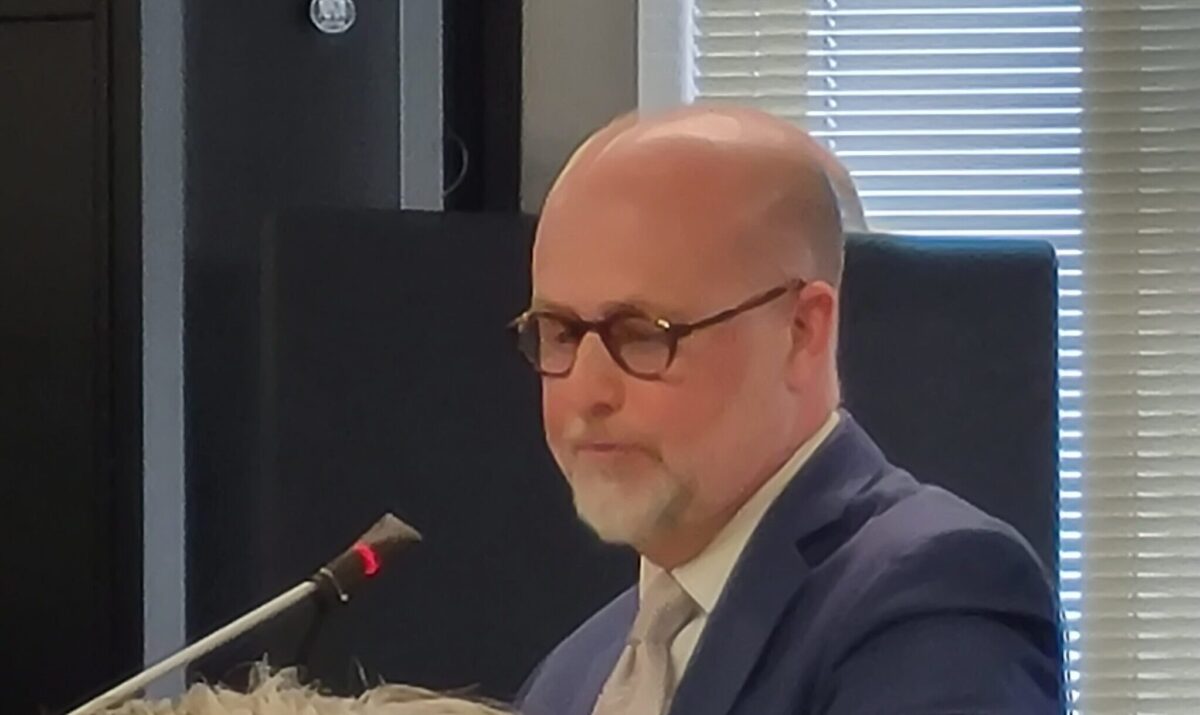
Kimber Shoop, the director of regulatory affairs for OG&E, said the performance-based rate model outlined in SB 1103 has already been implemented for regulating Oklahoma’s natural gas companies.
“This bill is good for customers,” he said. “This process is designed to benefit customers” and stabilize rates by providing more scrutiny.”
During the last 20 years, OG&E on average has gone about three or four years in between rate cases, Shoop said.
RELATED
Electric legislation: Performance-based rate proposal advances; deregulation, ROFR fizzle by Michael McNutt
With more gradual rate increases, OG&E would be able to plan better, Shoop said. There’s also a provision in the bill that says if an electric utility over-earns in a year, then the utility would directly refund those additional earnings, he said.
SB 1103 also would require utilities to have a certain amount of storage to generate electricity over any given 14-day period during the winter months. Shoop said that should help OG&E and other electric utilities avoid having to buy natural gas on the spot market with the elevated prices that were seen during Winter Storm Uri in February 2021.
OG&E already maintains about 3.5 billion cubic feet of natural gas, or about 70 percent of the 14-day requirement, Shoop said. Before Uri, OG&E had only a small amount of storage because the price of natural gas had been so low and so stable for so long, he said. The company’s failure to plan and prepare for a catastrophic event was widely criticized by customer advocates and others following the historic 2021 storm.
Jeff Cloud, who served on the Corporation Commission from 2003 to 2011, said a performance-based review system has been in place for nearly 20 years for natural gas companies and has worked well.
“If electric utilities exceed an earnings threshold set by the Oklahoma Corporation Commission, SB 1103 would require the companies to return 100 percent of excess profits to customers: 75 percent through direct refunds on electric bills and 25 percent invested to improve grid reliability,” he said.
Cloud, now the executive director of Alliance for Secure Energy, which promotes the interests of Oklahoma’s investor-owned electric utilities, said SB 1103 does not mean automatic rate increases. He said that rhetoric is intended to scare ratepayers.
“Under this bill, rates could only change if electric companies perform and when approved by the Oklahoma Corporation Commission,” he said.
Opponents fear measure would usurp authority of OCC
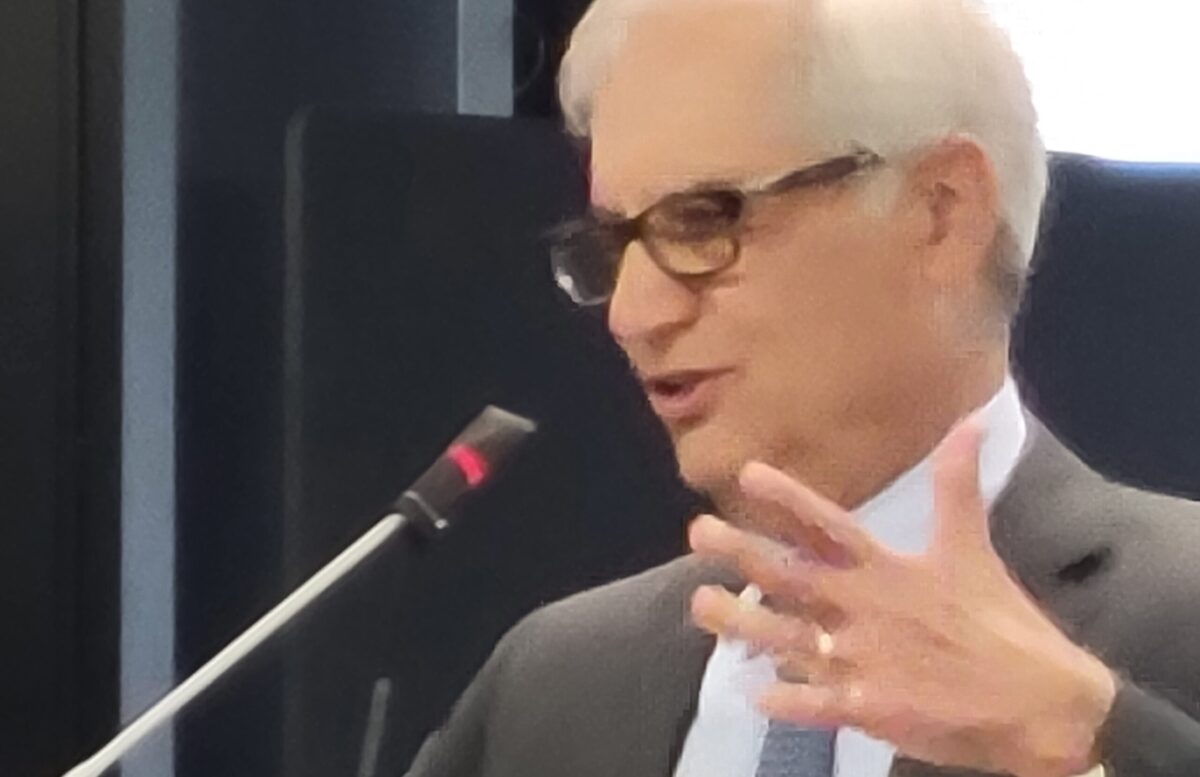
But Tom Schroedter, the executive director of Oklahoma Industrial Energy Consumers, a group that acts on behalf of industrial companies and other large consumers of energy, said SB 1103 usurps the authority of the OCC to determine whether a performance-based rate plan is in the best interest of consumers and the public interest.
He said the OCC would have to grant a utility’s application for a performance-based rate plan, taking away the sole authority of the Corporation Commission to regulate public utilities and their rates.
“You’re elected by the people of Oklahoma to regulate electric utilities,” Schroedter told commissioners, adding that no ratepayer groups support SB 1103. “This is a bad idea. This will line the pockets of shareholders.”
Mike Velez, a senior attorney for OCC’s public utilities division, said SB 1103 tips the balance in favor of electric utilities at the expense of ratepayers.
“Due to requirements in the bill to purchase particular amounts of fuel in storage, the market will respond with higher prices,” he said. “Of course, such higher prices will be passed directly to the consumers.”
Schroedter urged commissioners to “stop this nonsense or at least try to stop it.”
“Your own staff says this is a bad idea,” he said.
At one point during Monday’s hearing, an attorney with the U.S. Department of Defense named John McNutt provided testimony over the phone from Virginia. He said the federal agency, which operates military bases that consume significant electricity, generally opposes performance-based rate plans.
AG Gentner Drummond files statement of position in similar case
Asked if Attorney General Gentner Drummond had an opinion about SB 1103, Deputy Attorney General Chase Snodgrass told commissioners the attorney general last week filed his statement of position in the pending PSO rate case. He requested the OCC issue a notice of inquiry to consider and study the potential for a multi-year pilot of either a performance-based rate change plan or formulate rate plan for the regulated electric utility sector.
According to Drummond, the inquiry should consider:
- What alternative forms of ratemaking are currently used by other utility regulatory commissions? How many states currently use each?
- What have been the outcomes in other states where alternative forms of ratemaking have been approved?
- What measures or features are available to ensure alternative forms of ratemaking work to the benefit of both the ratepayer and the regulated utility sector?
“Issuance of [a notice of inquiry] would further the public interest by allowing all relevant stakeholders to consider what, if any, form of alternative ratemaking works best for the State of Oklahoma,” Drummond’s filing states. “The attorney general believes that further study of formula based rate plans and performance based rate change plans would advance the public interest and provide ratepayers, industrial and commercial interests, and each member of the regulated electric utility sector to discuss and study the need for alternative forms of ratemaking.”
(Editor’s note: Public Service Company of Oklahoma has provided charitable sponsorship of the Sustainable Journalism since 2020. This article was updated at 9:40 a.m. Wednesday, March 22, to clarify a subhead.)









